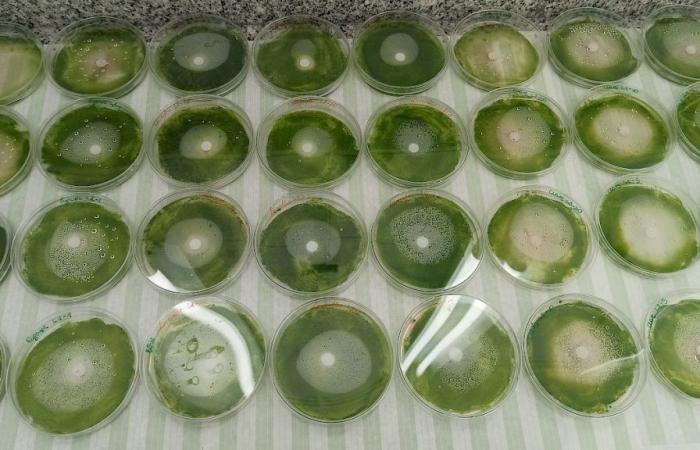PhD student Michal Komar joined a group of researchers from the Department of Life Sciences (DCV) at the University of Coimbra (UC) to study aspects of degradation of cultural heritage caused by the action of microorganisms. With the guidance of Professor Nuno Mesquita, a researcher at the same institution, the Polish student tested the effectiveness of essential oils in preventing and growing microalgae, fungi and bacteria, on materials such as stone, paper and parchment.
According to the researcher and advisor, microalgae can be terrestrial and are responsible for turning building facades green. They correspond to the group of primary colonizers that serve as food for fungi, forming an ecological succession of different microorganisms. To combat invading agents, components were created that can be toxic to the environment.
Nuno Mesquita reveals that the study analyzes the effectiveness of the components present in different essential oils. Some of them were extracted from plants by students at the Faculty of Medicine of the University of Coimbra (FMUC) and others can be purchased through pharmaceutical companies. As it is not a pure active ingredient, it is just a small group of compounds that help fight microorganisms.
Another point of investigation is the comparison between the effectiveness of the most toxic compounds and essential oils over a given period of time. The DCV researcher points out that the main objective is to reduce the release of dangerous chemical substances into the environment, even if this implies a reduction in the interval between applications.
Temperature is a topic that will still be studied, but the professor explains that each compound reacts in different ways depending on this factor. As a rule, temperature influences the growth rate of microorganisms and the volatility of compounds may be compromised by its increase.
Nuno Mesquita presents the next step as studying how compounds are applied to surfaces, which can be direct or associated with other substances, for example, through the inclusion of components in materials such as paints and mortars.
Photography: University of Coimbra
Tags: Study tests essential oils prevent microalgae growth monuments






